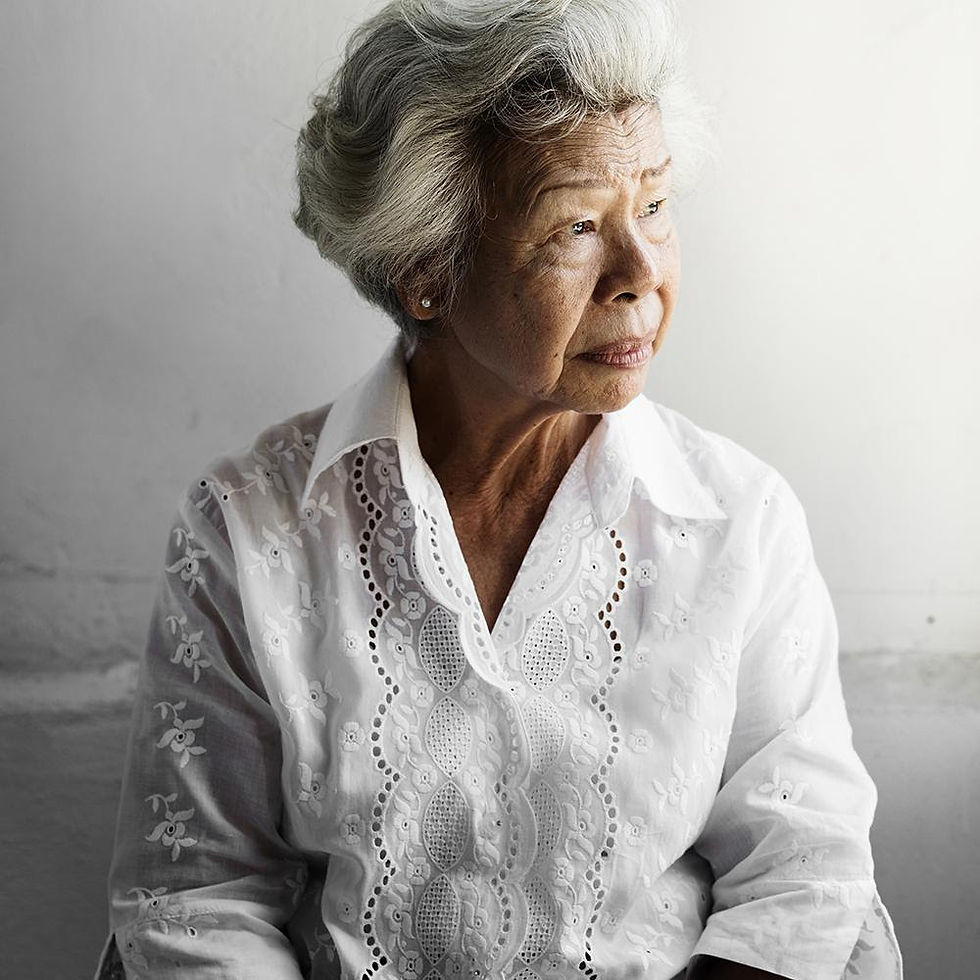What are Warning Signs of Neglect?
- Laura Cassell

- Jul 12, 2020
- 3 min read
Updated: Aug 19, 2020
This is the first blog on my blog series regarding Types of Elder Abuse. Each blog post will focus and define a different form/type of Elder Abuse. Volume 1 of my first blog series is about a type of elder abuse which is commonly misunderstood, ignored and underreported -Neglect of an elder.
According to the U.S. Justice Department, "caregiver neglect is the most unreported type of abuse, with 1 out of every 57 cases being reported." Neglect of an elderly person refers to refusing or failing to provide an elder with the necessities for life functions including: water, food shelter, clothing, medicine, hygiene, personal safety or comfort that is required.
Did you know, "A least 1 out of 10 adults over the age of 65 suffers from at least one type of abuse each year?" -U.S. Department of Justice.
What are common warning signs of Neglect of an elderly person?
unusual weight loss
malnutrition
dehydration
untreated physical problems (ex: bed sores)
unsanitary living conditions: dirt, bugs, soiled bedding and clothes
poor hygiene
poor clothing for weather needs
unsafe living conditions (harmful to quality of life)
desertion of elder in unfamiliar or public place.
What makes one elderly more at risk than another for neglect?
Risk factors that may increase the likelihood for abuse of an older person usually can be recognized at an individual, relationship, community and socio-cultural levels. In the individual level this would include poor physical and mental health of the victim. In the community setting, social isolation of caregivers and older persons and the ensuring lack of social support is a significant risk factor for elder abuse by caregivers.
There are a few different elder abuse theories that can somewhat attempt to explain why different types of elder abuse occur. Situational theory is one that is relatable to Neglect of the elderly. Situational theory refers to an overburdened caregiver who cannot cope with the demands of caring creates a situation of abuse and neglect. Another elder abuse theory is the Stratification theory relates to caregivers’ low job satisfaction and because of that individuals low level of proper training and inadequate education could lead to elder abuse in the home or in a nursing home/assisted living setting.
Neglect abuse is a type of elder abuse that is most times hidden for long periods of time. The abuser and the abused might appear to be in good standing and have a solid relationship from what the eye sees. But, this is because the elderly individual who has been left to urinate in their clothes and left for hours waiting for help is fearful of that individual who has been neglecting and leaving them to figure it out on their own is intimidating and terrifying to them. Most times, the elderly person is scared to do anything wrong to make the supposed caregiver angry or upset – and that is their only way of ensuring hygiene, safety and quality of life so they comply with the abusers demands and stay quiet. These abusers who neglect the elderly lead by being intimidating because they know that the person the elderly life is in their hands. They use this power as an intimidation tool and know can do this.
Unfortunately, neglect is one of many different forms of elder abuse. It is one of the most common and hardest to track or report. According to The World Health Organization, "Elder Abuse is an underestimation, as only 1 in 24 cases of elder abuse is reported, in part because older people are often afraid to report cases of abuse to family, friends, or to the authorities."
I am happy to help discuss any challenges, questions, frustrations, or concerns that you may be having. I am able to help review your specific challenges and brain storm personalized solutions to those challenges. As far as serious elder care abuse concerns or possibilities, please contact the National Council on Elder Abuse by go to their contact information on their website here: https://ncea.acl.gov/Contact.aspx orby contacting your local law enforcement. Please let me know any questions on neglect by emailing or calling me anytime.

Laura Cassell, CDP
Aging and Dementia Care Expert
Pearl Care Solutions & Senior Care Authority-Gulf Coast
507-254-0506 or lvonch@icloud.com





Comments